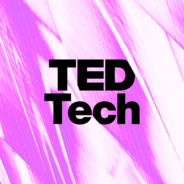This is an episode of Fixable, another podcast from the TED Audio Collective. The evidence is clear that hybrid work is good for both people and organizations. So why are companies as big as Amazon now asking employees to come into the office all five days of the work week? Could “magical hallway conversations” actually make teams better — or is this a leadership play based on nostalgia and wishful thinking? In this provocative "Unsolicited Advice" episode, Anne Morriss and Frances Frei debate what Amazon’s new return-to-office mandate means for the company’s future.Frances Frei is a Harvard Business professor. Anne Morriss is a CEO and best-selling author. Anne and Frances are two of the top leadership coaches in the world. Oh, did we mention they're also married to each other? On Fixable, Anne and Frances move fast and fix stuff by talking to guest callers about their workplace issues and solving their problems – in 30 minutes or less. Both listeners and guests will receive actionable insights to create meaningful change in the workplace – regardless of their position on the company ladder. You can listen to Fixable wherever you're listening to this. If you want to be on Fixable, call our hotline at 234-Fixable (that's 234-349-2253) to leave Anne and Frances a voicemail with your workplace problem.For a chance to give your own TED Talk, fill out the Idea Search Application: ted.com/ideasearch.Interested in learning more about upcoming TED events? Follow these links:TEDNext: ted.com/futureyouTEDAI Vienna: ted.com/ai-vienna Hosted on Acast. See acast.com/privacy for more information.

Wissenschaft & Technik
TED Tech Folgen
From the construction of virtual realities to the internet of things to the watches on our wrists—technology's influence is everywhere. Its role in our lives is evolving fast, and we're faced with riveting questions and tough challenges that sit at the intersection of technology and humanity. Listen in every Friday, with host, journalist Sherrell Dorsey, as TED speakers explore the way tech shapes how we think about society, science, design, business, and more.Follow Sherrell on Instagram @sherrell_dorsey and on LinkedIn @sherrelldorsey Hosted on Acast. See acast.com/privacy for more information.
Folgen von TED Tech
223 Folgen
-
Folge vom 20.12.2024Fixable: Why is Amazon dragging its employees back into the office?
-
Folge vom 17.12.2024The TED AI Show: How AI digital doppelgängers could change the way we communicate w/ Synthesia CEO Victor RiparbelliAs AI technology advances, it’s becoming harder and harder to distinguish between work done by humans and work done by computers. But is AI becoming more human, or are we becoming more digital? Synthesia is a video platform that uses AI to generate lifelike video avatars, further blurring the lines between humans and their digitized lookalikes. In this episode, Bilawal sits down with Synthesia’s CEO, Victor Riparbelli, to discuss the benefits of having your own AI avatar, how companies are using this tool to improve communication, and why media literacy is more important than ever in a world of ever-thinning lines between real and fake. They dissect the risks that come with making this technology available to the public, the strict rules Synthesia has in place to protect their users, and question the ethics of having a digital clone. Tune in to see if you’ll be sending your own AI avatar to your boring meetings in the near future.For transcripts for The TED AI Show, visit go.ted.com/TTAIS-transcriptsFor a chance to give your own TED Talk, fill out the Idea Search Application: ted.com/ideasearch.Interested in learning more about upcoming TED events? Follow these links:TEDNext: ted.com/futureyouTEDAI Vienna: ted.com/ai-vienna Hosted on Acast. See acast.com/privacy for more information.
-
Folge vom 13.12.2024Could we replace data centers with … plant DNA? | Cliff Kapono and Keolu FoxIs it possible to meet the world's seemingly infinite demand for data storage while also caring for the natural environment? Biomedical researcher Keolu Fox and professional surfer and scientist Cliff Kapono believe that Indigenous knowledge combined with the science of genetics may offer such a solution: using the DNA of plant cells (like those found in sugar cane) as mini data warehouses. Learn more about the incredible potential of this technology — and how it could help foster ecosystem resilience in a high-tech world. After the talk, Sherrell reflects on the economic and environmental benefits this technology could reap. For a chance to give your own TED Talk, fill out the Idea Search Application: ted.com/ideasearch.Interested in learning more about upcoming TED events? Follow these links:TEDNext: ted.com/futureyouTEDAI Vienna: ted.com/ai-vienna Hosted on Acast. See acast.com/privacy for more information.
-
Folge vom 10.12.2024The TED AI Show: Could AI really achieve consciousness? w/ neuroscientist Anil SethHuman brains are often described as computers — machines that are “wired” to make decisions and respond to external stimuli in a way that’s not so different from the artificial intelligence that we increasingly use each day. But the difference between our brains and the computers that drive AI is consciousness – our inner world, defined by experience and awareness. Anil Seth is a professor of cognitive and computational neuroscience at the University of Oxford. He studies human consciousness and he’s concerned about the way we’ve come to think about AI as conscious minds rather than useful tools. Anil and Bilawal sit down to discuss the differences between intelligence and consciousness, the possibility of AI becoming self-aware, and the dangers of assigning human-like traits to our AI assistants. For transcripts for The TED AI Show, visit go.ted.com/TTAIS-transcriptsFor a chance to give your own TED Talk, fill out the Idea Search Application: ted.com/ideasearch.Interested in learning more about upcoming TED events? Follow these links:TEDNext: ted.com/futureyouTEDAI Vienna: ted.com/ai-vienna Hosted on Acast. See acast.com/privacy for more information.
